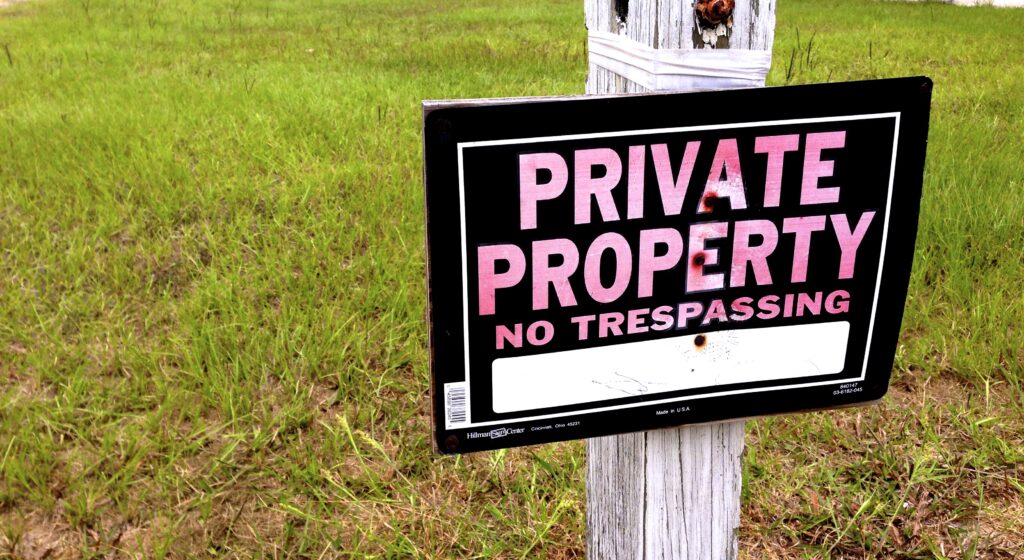Government-imposed smoking bans have been spreading across the United States and around the world in the past two decades. Cities, counties, states, provinces, and even whole countries have embraced the idea that the slight public health risk possibly caused by secondhand smoke justifies the use of police powers to enforce smoking bans on private property.
Most news accounts regarding smoking ban proposals make it seem as though this phenomenon is fresh, new, and progressive, and that once passed, smoking bans are likely to remain on the books and be enforced forever. However, history shows the reality is quite different.
Many smoking bans have been adopted in the past, often for reasons that appear ridiculous in hindsight, and they were repealed when cooler heads prevailed.
Four Centuries of Suppression
Smoking bans have come and gone on a global basis for the past 400 years. In 1575, the first recorded prohibition of the use of tobacco occurred when the Roman Catholic Church banned smoking in any place of worship throughout the Spanish Colonies. In the 1600s, Pope Urban VIII threatened excommunication for those who smoked or used snuff in holy places. In 1633, Ottoman Sultan Murad IV banned smoking, and as many as 18 people a day were executed for breaking his law.
In 1634, Russian Czar Alexis banned smoking. Those found guilty of a first offense risked whipping, a slit nose, and exile to Siberia. Those found guilty of a second offense faced execution. That same year, the Greek Orthodox Church banned the use of tobacco, claiming tobacco smoke was responsible for intoxicating Noah.
Asian nations made moves against tobacco, too. In 1612, a royal decree forbade the use or cultivation of tobacco in China. It was expanded in 1638, when China made the use or supply of tobacco a crime punishable by decapitation. In 1617, a Mongolian Emperor prohibited the use of tobacco. People breaking the law faced the death penalty. In 1620, the Japanese government banned the use of tobacco.
Even in America, where tobacco originated, anti-smoking restrictions developed. The first recorded smoking ban in America occurred in 1632, when Massachusetts introduced a ban on smoking in public places. In 1639, Gov. Willem Kieft of New Amsterdam outlawed smoking in what later became New York City.
In Connecticut in 1647, people were allowed to smoke only once a day, and public smoking was prohibited. In 1683, Massachusetts passed the first laws in America prohibiting smoking outdoors. The city of Philadelphia followed suit, introducing fines for offenders.
Rare in 18th, 19th Centuries
Smoking bans and prohibitions became rare during the eighteenth and nineteenth centuries. Trade in tobacco became an important source of revenue for governments, and tobacco bans were repealed. There were a few notable exceptions, though, including a 1719 French smoking ban, which exempted a number of provinces, and a smoking ban in 1840 in Boston.
Anti-tobacco policies were revived in the United States in the late nineteenth and early twentieth centuries in a movement that paralleled the then-popular alcohol prohibition movement. The Anti-Cigarette League of America campaigned against cigarette sales. Between 1890 and 1930, 15 states enacted laws banning the sale, manufacture, possession, or use of cigarettes, and 22 other states considered such legislation.
Even the legislature of the tobacco-producing state of North Carolina considered cigarette prohibition laws in 1897, 1901, 1903, 1905, 1911, 1913, and again in 1917.
Eventually, all the states repealed their cigarette prohibition laws. Kansas was the last to do so, in 1927.
Nazi Smoke-Haters
The next major anti-smoking restrictions were in Nazi Germany. Anti-tobacco extremist Adolf Hitler once stated tobacco was “the wrath of the Red Man against the White Man.” Under Hitler, smoking was barred in many workplaces, government offices, hospitals, and rest homes, and later blanket smoking bans were introduced in many cafes, bars, and restaurants.
After World War II, during the period of de-Nazification, those bans were repealed.
Neither Progressive nor Permanent
Placed in historical context, today’s anti-smoking restrictions appear to be neither progressive nor permanent. Like past bans, they are based on prejudices and conventional wisdom that are likely to be falsified by new scientific and health discoveries or, if you like, new prejudices and conventional wisdoms.
Also like past bans, today’s prohibitions are leading to civil disobedience, black markets, and heavy social and economic costs.
With the anti-smoking message backed by billions of dollars from government, foundations, and drug companies, it is easy to overlook the backlash that is already occurring and has been growing stronger. Business owners have been fighting back against smoking restrictions, and prohibitions are being more widely flouted in places such as Italy, Spain, Turkey, and, yes, to some degree even in California.
In addition, governments need the revenue that smokers provide in taxes and in revenue to hospitality establishments that cater to a smoking clientele.
Though the anti-smoking movement looks formidable, if history is any indication we will not have to wait long for current smoking bans to unravel.
Jeremy Richards ([email protected]) is an assistant professor of history at a Georgia college.



